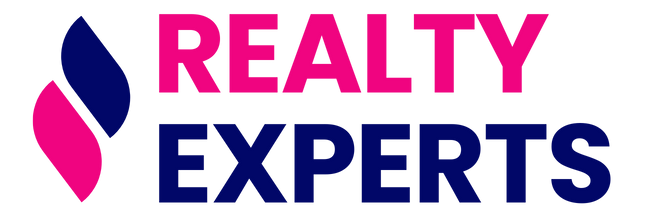Is Procurement a Good Career? Comprehensive Guide to Opportunities, Salaries, and Growth

Photo by EqualStock on Unsplash
Introduction: Understanding Procurement as a Career Path
Procurement, sometimes referred to as purchasing or supply management, is the strategic process of sourcing goods and services for organizations. Professionals in this field play a key role in ensuring that businesses acquire the right products and services at the best value. As organizations become more global and supply chains more complex, the demand for skilled procurement professionals continues to rise. But is procurement a good career for you? This guide explores current salary data, long-term career prospects, required skills, and actionable steps to enter and thrive in procurement.
Salary Benchmarks and Earning Potential
One of the most tangible benefits of a career in procurement is its competitive salary structure, especially in North America. Entry-level procurement positions typically start at around $63,000 per year, while mid-level roles average close to $120,000 annually. Senior professionals, such as Procurement Directors, can expect to earn upwards of $125,000 each year. The industry has also seen steady growth in compensation, with North American salaries increasing by about 5% in recent years [1] [2] [3] .
In addition to base salary, many procurement professionals receive bonuses, with approximately 76% of procurement managers receiving a bonus in the last year. This combination of salary and performance incentives makes procurement an attractive option for those seeking financial growth and stability [2] .
Career Advancement and Long-Term Opportunities
Procurement offers structured career progression, with clear pathways from entry-level roles to senior management. Common job titles include:
- Procurement Specialist / Buyer
- Procurement Manager
- Category Manager
- Supply Chain Manager
- Procurement Director
As professionals gain experience and pursue industry certifications, they often see substantial increases in responsibility and compensation. The substantial pay disparity between entry-level and management positions underscores the value of career advancement in this sector. For example, purchasing managers can earn an average of $131,531 annually, compared to the $63,000 starting rate for entry-level roles [3] .
Procurement is also a globally relevant field, with opportunities in diverse industries such as manufacturing, healthcare, technology, retail, and government. This versatility means that procurement professionals can transition between sectors, broadening their career options and geographical mobility.
Skills and Qualifications Needed for Success
Successful procurement professionals combine analytical thinking, negotiation skills, and strong communication abilities. Key qualifications include:
- Education: A bachelor’s degree in business, supply chain management, or a related field is often required for entry-level roles. Advanced positions may prefer or require a master’s degree.
- Certifications: Earning industry credentials-such as Certified Professional in Supply Management (CPSM) or Chartered Institute of Procurement & Supply (CIPS) certifications-can enhance employability and earning potential.
- Experience: Internships and entry-level positions provide foundational experience. Over time, professionals who consistently deliver results are often promoted to higher-paying roles.
Employers increasingly value specialized skills, including data analytics, risk management, and technological proficiency with procurement software. Strong relationship management and ethical decision-making are also critical in building trust with suppliers and stakeholders.
Day-to-Day Realities: What to Expect
Procurement professionals are responsible for a range of activities, including:

Photo by EqualStock on Unsplash
- Researching and evaluating suppliers
- Negotiating contracts and pricing
- Managing supplier relationships and performance
- Ensuring compliance with regulations and company policies
- Analyzing market trends and risks
The work environment is typically office-based, but many roles offer opportunities for travel or remote work. Since procurement impacts operational efficiency and profitability, professionals often collaborate with various departments, including finance, operations, and legal.
One practical example: A procurement manager in a technology company may lead a cross-functional team to negotiate a multi-year contract with a key software vendor, ensuring the best possible terms while minimizing risk to the business.
Challenges and Considerations
Procurement is not without its challenges. The role often involves high-pressure negotiations, tight deadlines, and complex compliance requirements. Market volatility, such as sudden price increases or supply chain disruptions, requires adaptability and quick problem-solving. Global events-like the COVID-19 pandemic-have demonstrated the need for resilience and contingency planning in procurement functions [1] .
To overcome these challenges, professionals must stay up to date with industry trends, regulatory changes, and best practices. Joining industry associations and participating in ongoing education can help procurement specialists remain competitive and effective in their roles.
How to Start a Career in Procurement: Practical Steps
If you are considering a career in procurement, follow these steps to maximize your opportunities:
- Earn a relevant degree: Most entry-level roles require a bachelor’s in business, supply chain management, or a related field.
- Build experience through internships: Many organizations offer procurement internships, which can provide hands-on experience and networking opportunities.
- Pursue certifications: Research certifications such as CPSM or CIPS, which are highly regarded in the industry. Check the official Institute for Supply Management or CIPS websites for eligibility and exam requirements.
- Develop key skills: Focus on negotiation, data analysis, and communication. Consider taking online courses or attending workshops from accredited providers.
- Network with industry professionals: Join professional associations such as ISM, CIPS, or local business groups. Attend conferences to learn from experienced practitioners and discover job leads.
- Apply for entry-level roles: Use reputable job boards, company career pages, and staffing agencies. For example, Techneeds specializes in connecting candidates with procurement positions in technology and manufacturing sectors [3] . You can search for current openings on their verified website or contact their recruitment team directly.
- Stay informed: Follow industry news, salary surveys, and best practice guides from organizations like the Chartered Institute of Procurement & Supply (CIPS) to keep up with trends and opportunities.
If you are unsure where to start, consider reaching out to your college career center, searching for “procurement internships” on reputable job sites, or contacting professional procurement associations for guidance on entry requirements and career planning.
Summary: Is Procurement Right for You?
Procurement offers strong earning potential, clear advancement pathways, and relevance across multiple industries. The field rewards analytical thinkers and strong communicators who enjoy negotiation and problem-solving. While the work can be demanding, the rewards-both financial and professional-can be substantial for those willing to invest in their development.
If you are interested in pursuing a career in procurement, take proactive steps to build your qualifications, network with industry professionals, and stay informed about the latest trends. Procurement is a dynamic, essential function in today’s global economy, making it a promising choice for motivated professionals.
References
MORE FROM realtyexperts.ai













